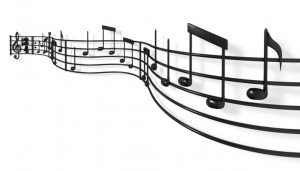It’s Labor Day, and I’m thinking about Linda Ronstadt.
Well, a lot of people are. But most of the writing being done about her lately seems to be of the “tsk, tsk, what a pity” variety. And while I think it is a shame that we won’t be able to hear her sing those songs we love in concert, anyone who thinks that was all there was to Linda Ronstadt hasn’t been paying attention all these years.
Linda Ronstadt’s voice has a beautiful tone, her phrasing is wonderful, and she has brought songs from hither and yon to the public ear. But it’s more than that. The music on those recordings we know and love, the music some were lucky enough to hear live or create in the studio with her, has been informed from Day One by her deep knowledge of music theory, of harmony, and of connecting with the audience. Listen to one of her interviews sometime.
The bad news is that Parkinson’s Disease is preventing Linda Ronstadt from singing and recording. If you want to feel bad, take a minute to feel bad if you didn’t see her in concert or that she has a disease that is tough stuff. (I know. Parkinson’s took one of my favorite uncles.) Then turn your attention to giving support, financial and otherwise, to organizations researching new ways to fight that disease and others.
The good news is that what powered Ronstadt’s music—her feeling for music and her understanding as to what makes songs (and audiences) tick—hasn’t gone anywhere. She could move further into music education, she could compose, or she could take her knowledge of structure, which any musician will tell you is the heart of the matter, into a whole new field.
And you? Perhaps you’ve had a setback. Something you thought looked promising didn’t materialize, or something you used to do isn’t viable anymore—or, at least, not for now.
Representative Jackie Speier and three of her friends wrote a wonderful book called This Is Not The Life I Ordered, and spoke at the Commonwealth Club about what they had found on the menu instead, and how they had responded.
Many of us have those stories. Life is full of surprises. But it’s also helpful to ask, when considering those things that didn’t go anywhere or came to a screeching halt: Is it really a closed door, or just a detour sign?
Drivers on the road often discover the planned route won’t work, for a variety of reasons. How many people stop, sit in the car, and fume? Very few. Most choose another route and keep going.
So can you. Yes, it’s sad that some things we want don’t materialize, or sometimes things are taken away from us—maybe things we took for granted, assumed we’d always have. But Beethoven’s finest music was written after he’d lost his hearing, and you can probably supply your own examples of similar situations in the lives of people you know. Some use the word “prosilience” to describe this capacity to become stronger through our encounter with adversity than we were before it crossed our path. http://www.psychologytoday.com/blog/hot-thought/201308/better-resilient-prosilient
Beethoven could compose because the music was still in him, maybe more alive than ever. Linda Ronstadt’s music is still alive in her. And you? The music is still in you, too. How will you play it?
©2013 Laynie Tzena. All Rights Reserved.





No comments yet.